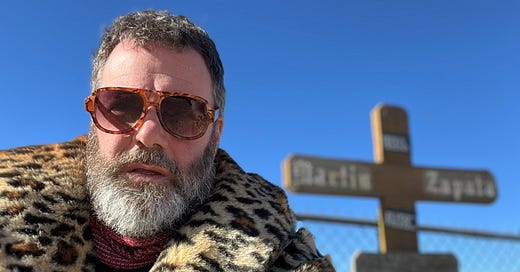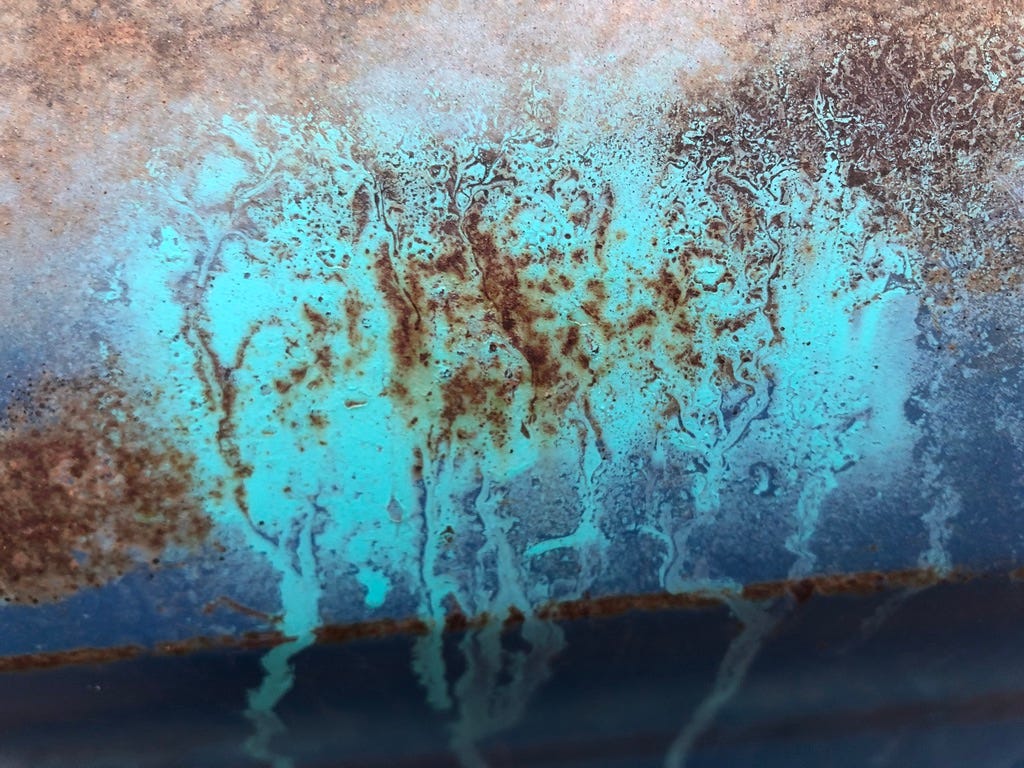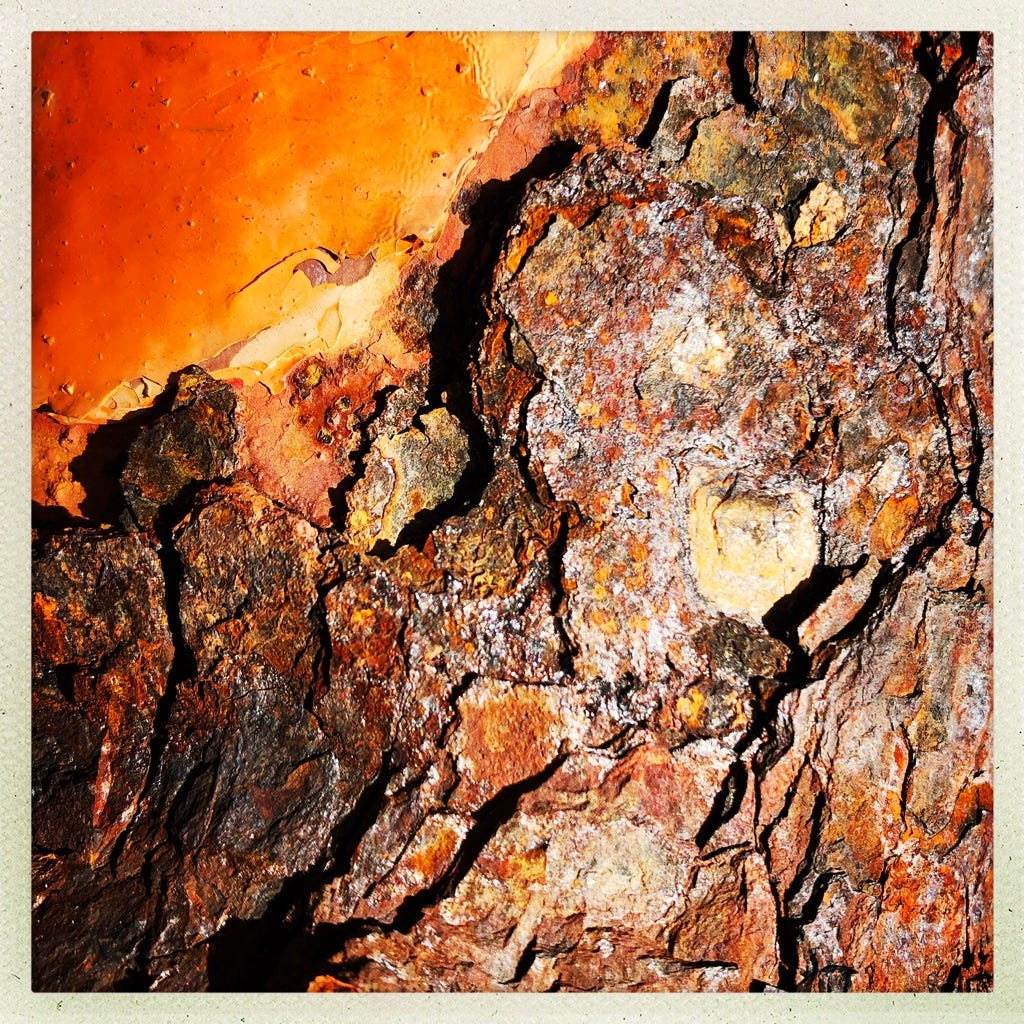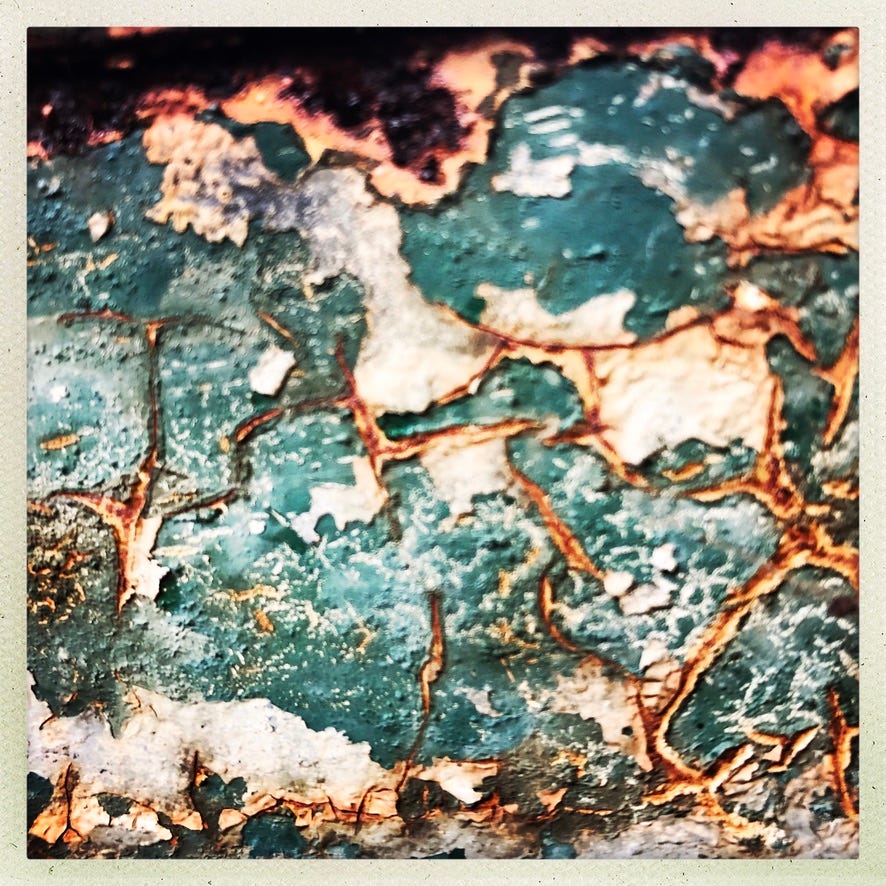One way to describe 60: it’s an age that has always applied to other people. Not people like me, people who are young.
Uh oh …
Time has once again performed its orchestrations without asking permission. It’s shaped my body and spirit into this quite different thing, according to its own powerful vision, without much of an invitation to collaborate. But then where I see malice, it sees necessity, so we wouldn’t have been good collaborators anyway.
Yet here I am: 60. An age that demands a reckoning. The Door of Death only cracked open a smidgeon when I turned 50, but it’s opened more widely now. It’s easy to imagine my heart tuckering out. I can feel my stiff hip giving out. I hear a bustle of funereal festivities in the distance.
Loss is at the center of it all. Loss is the common theme of all art: lost youth, lost loves, lost looks, lost homes, lost abilities, lost opportunities.
We are creatures of loss. We even lost paradise if you believe in the Bible. It’s a big thing to lose: all of fucking paradise!
“Something is missing. Something has been lost. I believe this is at the heart of why I write,” writes Sigrid Nunez in the opening pages of her novel, The Vulnerables.
We say goodbye to something every day. I suppose we say hello to something every day as well, but that hello comes with whiffs of future loss.
I’ve often wondered how a 90-year-old gets up, realizing it might be their last day. Yet they wake up just like the rest of us, thinking about their breakfast, even as they also hear the clock’s ticking getting louder and louder. Somehow we all keep getting up.
Nothing is meant to remain, no matter how tightly we hold onto it, no matter how much warmth it gives.
In one of my stories, I have a character who claims that it is impossible to die in the middle of a kiss (a good argument for more kissing).
It’s such a dagger of injustice, to die in the middle of a vibrant pulse of life, but that defines the drama of loss that Nunez mentions: loss is never fair, and only rarely graceful.
Galileo determined that all things drop at the same rate, no matter their mass. We all fall in the same way. No matter what brand of skin moisturizer we use.
So the question: how to live, how to create, especially as our clocks crumble?
To live with urgency? To get things done?
Initially, I thought this newsletter would be about the creative urgency aging has sparked in me, and it’s true, mortality is a great motivator. Write that novel today. Tell that person you love them. Notice that butterfly.
I’ve certainly felt urgency’s increasingly desperate huffs and puffs, especially after I was diagnosed with a menacing bundle of heart problems five years ago.
I have projects I want to complete, and I even have visions to learn new art forms (I’d love to sing with a band and try out stand-up comedy), but I don’t want to live my final days to the staccato rhythms of the Urgent. It just doesn’t sound like much fun, for one. I want to pause and meander and savor and wonder and drift.
This is one gift of aging: I’m going to take things on my time now.
Deadlines can be great galvanizing forces, yet they require a narrowness of purpose and vision, and a type of muscular exertion, that doesn’t seem fitting for the aged me right now. I’ve spent a lifetime of getting things done, and my life has felt like a constant swirl of movement as a result. The phrase “being present” is farcical to me.
As I get older, I realize how most of us are products of a capitalist ethos that stresses productivity. We have to-do lists baked into our cells. Household lists. Bucket lists—lists for travel, for books, for restaurants.
How much life is lost in the seams of those lists, I wonder?
The art of rusting
I’ve always liked rusty objects, the ways greens and browns dance in a patina. Rust occurs when iron is exposed to oxygen and moisture. It’s a process of transformation, of creation. I often think a rusted object is more beautiful than the shiny object it once was.
That’s the way I feel myself: rusted and rusting, yet all the more intriguing because of the rust. You never really know what shapes and hues rust will paint with.
Fifteen years ago, when I was a sprightly 45 (Time is so cunning in the way what’s once old can then become young), I wrote this ode to decay as a 100-word essay:
Ode to Decay
The menacing artistry of a rusted piece of tin, the pulse of its patina, incrustations. Sharp corners demand such sharpness. A shine requires work, exertion, planning, orders, but decay invites a slide into introspection, madness, abandonment, brilliance. The rebellion of the lost cause. Jagged brims threaten to claw. An eerie acquiescence. Abeyance. Disintegration like exhalation, like meditation. The lonely peace that can only be found in states of desuetude.
So leave me alone, please, to enjoy the molds and rusts that find me. Let me tarnish and gaze upon my preferred russet shades. God is in the dust of remnants.
Without knowing it when I wrote it, this little essay might just be my creative guide for this dramatic “third act.” I like looking for what I’ll call the divine in odd places, in remnants. I like surrendering to a larger force, with an “eerie acquiescence.” To live and create in suspension. “Desuetude”—a state of disuse—is also a state of nuanced creation.
And then there’s such a wonderful power in being a lost cause: it means I can do whatever I want, be whoever I want to be. Find me if you want, but I’m fine being lost.
Because there is a great freedom in disuse, great possibilities to pursue when fewer people care to notice you.
I no longer care about winning arguments. I don’t need any fame or fortune. And maybe not much validation. I like being silent more than I used to. I like slinking into the background. I ask for grace from a God I’ve never seen, but I know they’re not listening. Still, I find new patinas taking shape, new colors to paint with.
So instead of checking things urgently off my urgently demanding list, I’m choosing to live a life of rusting—noticing the rusting, relishing the rusting. I surrender to this very odd sensual state that Time has decided to reveal to me.
Acceptance as celebration
To celebrate my 60th, I took a road trip to Death Valley, which I thought would be both metaphorically and dramatically appropriate. The land is hard and cracked and forbidding. It lives up to the drama of its name in all ways (here are my photos).
But there is a magnificent peace I find in the land, a peace I can’t even describe. As I drove through Death Valley’s lonely, dessicated highways, my mind softened, my pains dissolved.
I don’t want to battle age, but stir it around, bathe in it. All of Time’s orneriness asks for celebration, acceptance, not resistance.
Acceptance can be its own type of celebration. Loss can be its own song. And therein lie the gains of this peculiar state.
I’m sorry, I don’t have any lists of creative principles to give you. I’ll mention that scientists have shown that our creative functions remain well preserved in older age, even with dementia. Since dementia runs in my family, I hope to find some poetry in it someday.
And that’s the best we can do, I suppose, look for the poetry in every state of being we find ourselves in. Practice finding the poetry in every era of our lives so that it will be at our fingertips when we need it, especially at the end.1
I’ll close with this poem:
Age Looking Back at Its Youth
By John M. Ridland
We had so little, yet we had so much: Thunder and lightning at the lightest touch.
Spare a dime to help me publish this newsletter?
If you can help a little ...
Resolve to write in 2025!
If you're struggling to create a writing routine, become a member of my Accountability Write-In community.
Every Monday and Wednesday night, participants hop onto Zoom, receive some inspiration along with a couple of optional prompts, and then dive into writing.
I am offering a FREE ACCOUNTABILITY WRITE-IN on Monday, January 6, 5-7 p.m. Pacific Time, for writers who want to sample the program.
Because a quote
“The art of losing isn't hard to master; so many things seem filled with the intent to be lost that their loss is no disaster.”
—Elizabeth Bishop
Except the art of losing is hard to master. I mourn each loss with all of the piques and pains that I had as a young lad. Even though I know that loss is no disaster, it too often feels that way.
Rustscapes
I take a lot of photos of rust. Rust has its own music. It keeps rhythm with time. It gives as it takes.
The art of rusting
I just realized I’ve been essentially writing about the “art of rusting” in other recent essays: how Surrender Is An Action Verb and The Erotics of Writing.
I just realized I’ve written about this in other recent essays, how Surrender Is An Action Verb and The Erotics of Writing.









I think this is my favorite of yours.
I am enjoying the mellow patina of greens and bronze of the 3rd age. Have been coasting and enjoying the view… still need to hit the gas pedal to get some poetry in print ( maybe leopard print 🐆😊 )